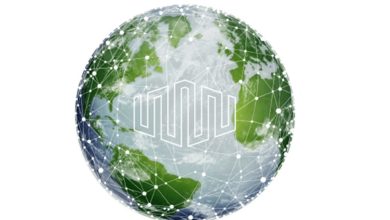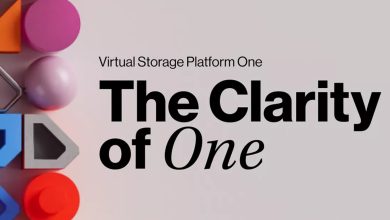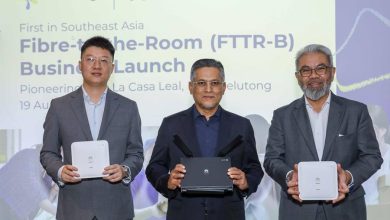GDS and SK ecoplant Joined Hands to Collaborate on Fuel Cell Technology Trial to Power Data Centres in Singapore

environment affiliate of South Korean conglomerate SK Group, today announced a collaboration to trial fuel cell power supply solutions for GDS’s upcoming data centre in Singapore. The trial aims to explore sustainable green energy options for the Singapore data centre facility. By embracing this initiative, both companies demonstrate their unwavering commitment to promoting sustainable development and the use of renewable resources in the region.
Under an earlier collaboration agreement, GDS and SK ecoplant committed to jointly promoting the application of fuel cell eco-friendly power supply solutions for data centres in Southeast Asia. Compared to conventional power sources, fuel cells convert the chemical energy of hydrogen or other renewable power sources into electricity, resulting in an exceptionally clean energy production process with significantly lower or even zero emissions.
GDS’s recent achievement in securing new data centre capacity paved the way for the collaboration with its industry-leading partners to pioneer two hydrogen pilot use cases in Singapore. The first use case, in partnership with SK ecoplant, explores the application of solid oxide fuel cell (SOFC) technology to generate power from green hydrogen as a main power source. The second involves the supply of locally generated power from imported hydrogen sourced from energy partners. GDS believes these use cases will serve as critical proof of concepts within the region, effectively shaping the evolution and advancement of hydrogen as a reliable power source.
Under the trial, GDS will employ cutting-edge technology and leverage its extensive industry know-how to develop a best-in-class data centre in Singapore. SK ecoplant will collaborate with its strategic partner, Bloom Energy, to generate low-carbon electricity through the deployment of SOFC technology. The trial will begin with a small-scale installation of fuel cells, initially using natural gas as a feedstock in place of hydrogen. Once the regional hydrogen infrastructure, supply chain, and regulatory frameworks are sufficiently established, GDS and SK ecoplant will consider more widespread use of SOFC-enabled power generation in the future.
Mr. William Huang, Chairman and CEO of GDS, said, “I am thrilled about our collaboration with SK ecoplant, as it will bolster our strategic positioning and expansion in Southeast Asia. This collaboration not only enhances the green and low-carbon attributes of our data centres but also sets the stage for large-scale adoption of green energy in the future. With the invaluable support from SK ecoplant, GDS is diligently working towards achieving our goals, including being the first to implement SOFC technology to power a data centre, and ultimately establishing the first-ever fuel cell-powered data centre in Southeast Asia.”
SK ecoplant believes the collaboration will lead to many exciting growth opportunities for the renewable energy market in Southeast Asia. “We will speed up targeting various commercialisation fuel cell markets as we have experience in fuel cell-based power supply solutions from small and medium-sized to large-scale power generation fuel cells such as data centres and hospitals,” said Mr. Kyung-il Park, CEO of SK ecoplant. He continued, “We will take the lead in exports by preoccupying the global fuel cell market through continuous cooperation with domestic companies and our partner Bloom Energy in this project.”
As a leader in the data centre industry, GDS has firmly demonstrated its unwavering commitment to achieving its goal of carbon neutrality by 2030 through, amongst others, this partnership with SK ecoplant. By actively testing real-world utilisation of hydrogen as a power source using SOFC technology, this collaboration strongly aligns with Singapore’s National Hydrogen Strategy’s goal of meeting up to 50% of Singapore’s projected electricity demand by 2050 with low-carbon hydrogen.
About GDS Holdings Limited
GDS (NASDAQ: GDS; HKEX: 9698) is a leading developer and operator of high-performance data centres in China and Southeast Asia. Its facilities are strategically located in primary economic hubs where demand for high-performance data centre services is concentrated. With a track record spanning 22 years, GDS has successfully delivered services to some of the largest and most demanding customers in need of outsourced data centre solutions. GDS serves over 840 customers as the largest carrier-neutral data centre service provider in China. With over 100 data centres, GDS offers data centre services to hyperscale cloud service providers, large internet companies, financial institutions, telecommunications carriers, IT service providers, as well as large private sector and multinational corporations. Recognising the potential for growth in Asia, GDS established its international headquarters in Singapore in 2021. This move has allowed GDS to develop a strategic Southeast Asia strategy to better serve clients and contribute to the region’s digital economy ecosystem. To learn more about GDS, please visit http://www.gds-services.com.
About Bloom Energy
Bloom Energy is a provider of breakthrough solid oxide fuel cell technology generating clean, highly efficient onsite power from multiple fuel sources. The company’s leading solid oxide platform for distributed generation of electricity and hydrogen is changing the future of energy. Fortune 100 companies around the world turn to Bloom Energy as a trusted partner to deliver lower carbon energy today and a net-zero future. For more information, visit www.bloomenergy.com.
About SK ecoplant
By integrating digital transformation into its entire value chain of the environmental business, SK ecoplant is upgrading its business and accelerating expansion of its operation to the global market from its global operation base in Southeast Asia. It has grown rapidly in the renewable energy sectors, including hydrogen, fuel cells, offshore wind power, and photovoltaic power. Especially, SK ecoplant has a “self-completing” value chain for energy in the future, encompassing production, distribution, and usage. The company is competitive in all renewable sectors, such as offshore wind power, photovoltaic power, hydrogen fuel cells, green hydrogen, and green ammonia. For offshore wind power, SK ecoplant became Korea’s first to create a complete value chain covering business development, permits and licenses, manufacturing of structures, EPC, and power generation. Expanding its operation into floating offshore wind power, the company strives to develop independent technologies and complete a competitive supply chain. It is also committed to ESG-oriented management for sustainable growth, leading the efforts to solve global environmental and energy issues and achieve a circular economy for zero waste and net zero.




